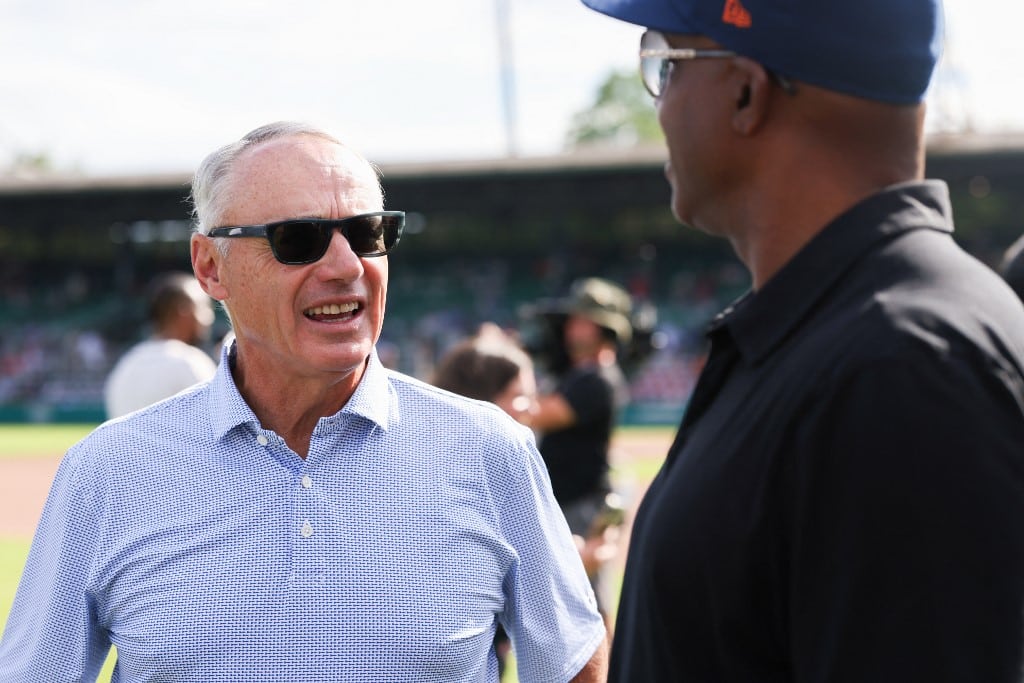
MLB Commissioner Rob Manfred recently discussed the challenges and benefits of a regulated sports betting market despite being a litigant against the industry back in 2018.
Greater Transparency
New Jersey was the state that blazed a trail to legalize and regulate sports betting in the United States after taking its case to the U.S. Supreme Court where the Garden State eventually prevailed in 2018. It was a landmark decision and one that overturned PASPA, giving states, and not the federal government, the freedom to decide if they would allow sports betting within their borders.
Naturally, New Jersey was one of the first to jump aboard a gravy train that has subsequently delivered billions of dollars to top sportsbooks and state governments alike since its inception. Ironically, one of the litigants in New Jersey’s SCOTUS lawsuit was Major League Baseball under the watch of the current commissioner, Rob Manfred. Manfred, like many commissioners, was against the legalization of sports betting in the United States but he has come to understand that wagering on sports in the U.S. was happening regardless of its legality.
After much thought and reflection, Manfred, much to his credit, understands that regulating the market makes it more transparent. Any bad actors or suspicious behavior will be reported, as opposed to going unnoticed when bets were relegated to local bookies or offshore sports betting sites, both of which are unregulated in the United States.
The Commish Speaks
The integrity of the leagues is paramount. It doesn’t matter whether it’s the NFL, NBA, NHL, MLS, or MLB: there can be no premeditated hijinks intended to alter the outcome of any game. Should fans lose faith in the integrity of the games it would be the death knell of that league. That is why the harshest fines and penalties are levied on athletes who bet on their league’s games or try, in some capacity, to influence the outcome.
MLB Commissioner Rob Manfred understands this but he also knows betting on sports has become mainstream in the United States and there is no going back. We should also note that Major League Baseball, like the other professional sports leagues, is making millions of dollars through sponsorships of the mobile sportsbooks that they once considered their adversaries.
Monitoring the Game
When asked about sports betting at the 2024 Associated Press Sports Editors Commissioners Meetings in May, Manfred said, “We were kind of dragged into legalized sports betting as a litigant in a case that ended up in the Supreme Court. Having said that, I recognize — probably better today than when we were involved in that litigation — that one of the advantages of legalization is it’s a heck of a lot easier to monitor what’s going on than it is with an illegal operation.”
Although there have been betting scandals that have been unearthed since legal sports betting came to the U.S., most notably Ippei Mizuhara, the translator for one of the biggest stars in baseball, Shohei Ohtani, they have not been earth-shattering. More importantly, betting activity in the U.S. is being thoroughly scrutinized, which has bolstered, not impeached, the integrity of professional sports.
Commissioner Manfred put it succinctly when he said, “In the old days, you didn’t have gambling scandals. It didn’t mean they didn’t have gambling. You just didn’t know about it.”







